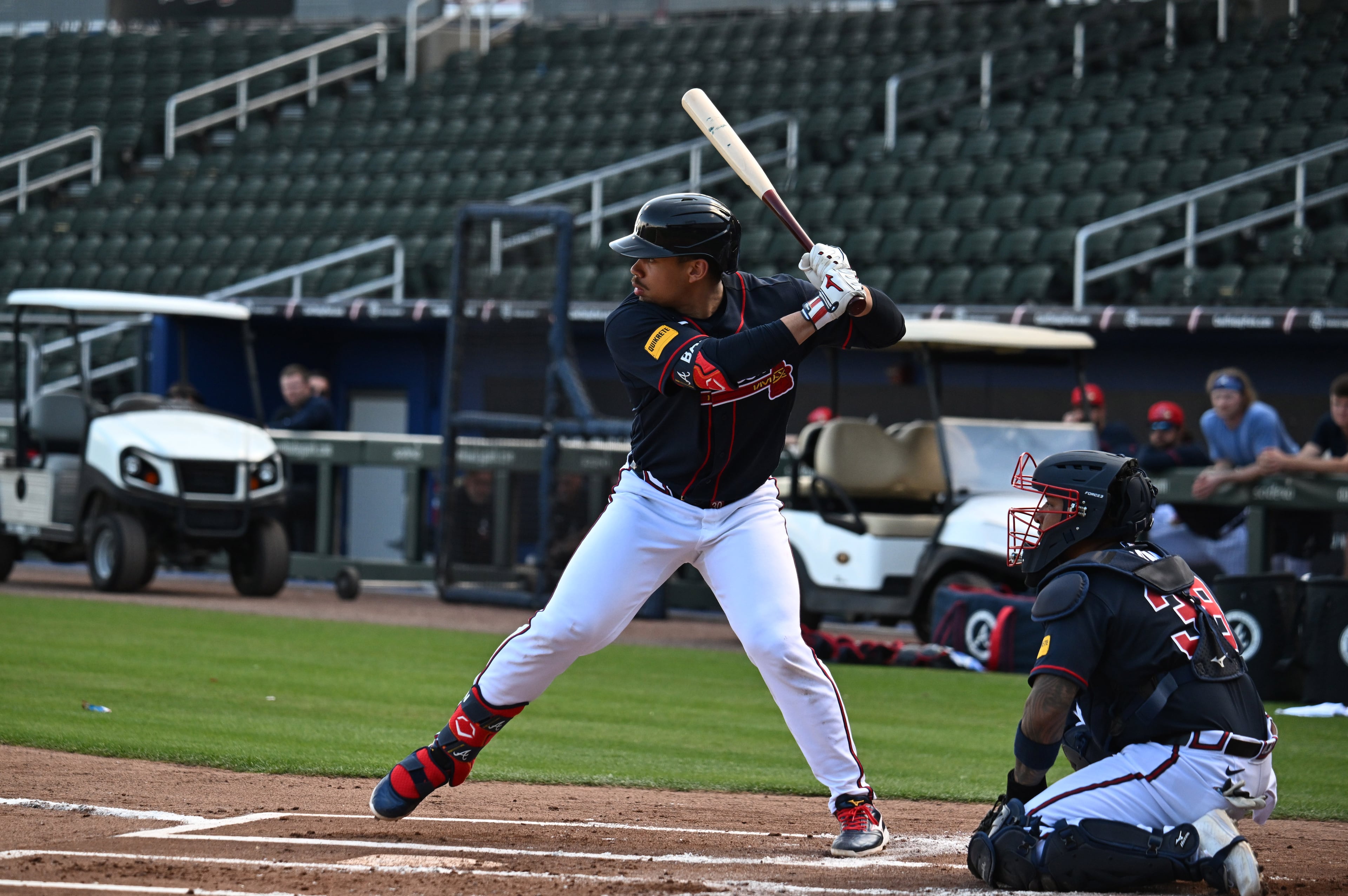Soriano surprises Braves, accepts arbitration
Indianapolis -- Just before midnight Monday, Rafael Soriano's agent said what the Braves did not want to hear: Soriano has accepted the team's arbitration offer, giving the Braves a high-priced reliever they had already replaced and can't realistically afford to keep.
Mike Gonzalez declined the arbitration offer, but Soriano took it and stands to make between $7 million and $8 million. The Braves will get two compensatory draft picks when Gonzalez signs with another team, but they'll try trading away Soriano – but must give his consent to do so before June 15.
Braves general manager Frank Wren said nearly eight hours before the announcement that even if either pitcher accepted arbitration, it wouldn't hinder the team's ongoing roster moves and pursuit of offense. That statement will be tested in coming weeks.
"We feel protected either way," Wren said Monday afternoon, and listed two possible results of arbitration decisions by Soriano and/or Gonzalez: "A., they don't accept [arbitration]. B., they accept and at some point we trade them.
"It's not a big deal either way."
But there was no doubt the Braves preferred not to deal with the hassle of trying to trade either of them.
Some had thought that Soriano's agent, Peter Greenberg, was bluffing in order to stir up offers for his client when he said during the weekend that Soriano was seriously considering taking the arbitration offer and returning to the Braves.
The Braves signed closer Billy Wagner and setup man Takashi Saito last week to replace Soriano and Gonzalez, who divided the Braves' closer and setup duties in 2009 before becoming free agents.
Free agents had until 11:59 p.m. Monday, the first day of baseball's annual Winter Meetings, to accept or decline arbitration offers. Greenberg and Gonzalez's agent, Scott Boras, both waited until the final hour to notify officials of their decisions.
Unlike Greenberg, Boras never indicated his client might actually accept arbitration.
Soriano and Gonzalez were two of the three highest-ranked relievers on the free-agent market, along with Wagner. The Braves offered arbitration so they could get two draft picks for each when they signed elsewhere.
What the Braves hadn't counted on was the possibility that either would actually accept arbitration. The Braves figured that each pitcher would get multi-year offers from other teams, and not accept non-guaranteed, one-year arbitration offers with the Braves. They went 1-for-2 in that assessment.
Greenberg's weekend bombshell that Soriano might accept arbitration came days after the Braves signed Wagner and Saito to contracts that will pay $9.95 million in 2010.
There's not room in a projected $92 million-$95 million payroll to allocate as much as $18 million for three relievers, which is what it could cost to keep Soriano, Wagner and Saito. Still, the Braves insisted Monday it wouldn't leave them in a payroll pickle if Soriano accepted arbitration.
"He'd make the world's greatest setup guy," Cox said Monday afternoon of Soriano, who had 27 saves and 102 strikeouts in 75-2/3 innings last season.
But he'd also be the world's most expensive setup guy. Cox also said Monday that Wagner would be the closer, regardless of decisions by Soriano or Gonzalez.
Wren did not see Soriano or Gonzalez being amenable to non-closer jobs that would await should they return to the Braves. Which is why he also insisted he wasn't worried.
"I would anticipate that if they take arbitration, they're not necessarily going to be happy with the roles they have when they come back," Wren said before the decisions were announced. "Because they're not going to be the same as when they left. And once the market develops for relievers, they'll be asking us to try to [trade] them."
To pitch late in games, Wren had said Soriano or Gonzalez would have to go to other teams now that Wagner and Saito were onboard.
If a free agent accepts arbitration, a team needs consent to trade him before June 15, but the Braves believe Soriano might give that consent once he's told his role and once the trade market for relievers starts to heat up and the Braves can find a potential trade partner.
At the Winter Meetings hotel, there had been speculation that Greenberg was only trying to stoke a slow-developing market and get offers for Soriano by suggesting he might take the Braves' offer. In effect, he let interested teams know they had best make offers by midnight, rather than wait a few weeks for the free-agent market to take shape.
The deep-pocketed New York Yankees were among teams reportedly interested in Soriano, and Greenberg met Monday with the Houston Astros officials. The Boston Red Sox were also interested. But apparently, none made multi-year offers that were more attractive than the projected salary Soriano could expect through arbitration.
Wren said before Soriano's decision that even if the pitcher took the arbitration offer, his potential salary hanging over them wouldn't hinder the Braves' plans, which include trading a starting pitcher – they have six for five spots and are trying to trade Derek Lowe -- and acquiring at least one proven run-producer for first base or the outfield. Wren figured the salary would likely be gone by opening day anyway.
"We wouldn't worry about that holding us back," he said. "We're going to put our club together. That's the thing about having good players -- when you have good players, you can trade them."
More Stories
The Latest


